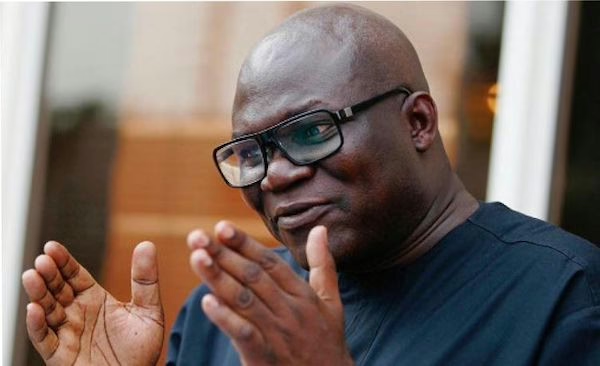Uche Nnaji currently serves as Nigeria’s Minister of Innovation, Science and Technology, a position he assumed following his appointment by President Bola Ahmed Tinubu. Recently, Nnaji has found himself embroiled in controversy over allegations that he falsely claimed to have earned a B.Sc degree in Biochemistry/Microbiology from the University of Nigeria Nsukka (UNN) in July 1985. These assertions surfaced during his Senate screening and subsequent swearing-in ceremony. Furthermore, investigative journalists have accused him of submitting a forged National Youth Service Corps (NYSC) certificate as part of his official documentation.
This situation echoes a familiar narrative in Nigerian politics. Under the Buhari administration, former Finance Minister Kemi Adeosun was compelled to resign after it was revealed she had presented a counterfeit NYSC certificate. In Nigeria, offenses such as forgery, fraud, and perjury carry significant legal weight, as outlined in Sections 362(a) and 366 of the Penal Code, Section 135(1) of the Evidence Act (2011), and Section 467 of the Criminal Code. However, these allegations must be explicitly pleaded and proven beyond reasonable doubt, as established in cases like APC & Anor v. Obaseki & Ors (2021) and Maigida Kuzalo vs. Bank of Agriculture (2025). Perjury, punishable by up to 14 years or even life imprisonment under Sections 117 and 118 of the Criminal Code Act, is equally grave. Beyond the legal ramifications, the accusations against Minister Nnaji suggest both ethical and legal breaches, prompting calls for his immediate removal, with many referencing the precedent set by Adeosun’s case.
RELATED: FACT-CHECK: Did Nigeria ban 25 U.S. goods in retaliation to Trump’s tariffs as claimed on Facebook?
Investigative outlets such as Premium Times, People Gazette, and Sahara Reporters have been relentless in probing Nnaji’s background for over two years. Both Premium Times and People Gazette reached out to UNN for verification. The university, renowned as Nigeria’s first indigenous and autonomous institution since its establishment in October 1960, prides itself on producing graduates who have significantly contributed to various fields. Yet, the handling of Nnaji’s case has cast a shadow over UNN’s reputation. Universities are expected to confer degrees based on academic merit and character-both of which are under scrutiny in this instance. This controversy is a source of embarrassment for all UNN alumni and demands a transparent public response from the institution.
When questioned about Nnaji’s academic credentials, UNN provided contradictory statements. In a letter dated December 31, 2023, the university acknowledged that Nnaji graduated with a Second Class (Hons) Lower Division in Biochemistry/Microbiology. However, in a separate response personally signed by Vice Chancellor Professor Simon Ortuanya, the university claimed Nnaji never completed his studies. Adding to the intrigue, Nnaji sought a court injunction to prevent the Federal High Court from accessing his academic records, a request that was denied by Justice Hausa Yilwa. Such inconsistencies are troubling for a prestigious institution like UNN and raise questions about the integrity of its administrative processes. This situation reflects a broader malaise affecting Nigeria’s educational system and highlights the urgent need for reform.
This controversy also sheds light on broader societal issues in Nigeria, particularly the tendency to exaggerate qualifications and titles. It is common for individuals to adopt grandiose titles-mechanics calling themselves “Doctor,” musicians styling themselves as “Professors,” and politicians demanding elaborate honorifics. Many politicians fabricate educational credentials despite the Nigerian Constitution’s clear stipulations. According to Section 131(d) of the 1999 Constitution, a presidential candidate only needs to have completed secondary education or its equivalent. The same applies to governors and members of the Houses of Assembly under Sections 177(d) and 106(c), respectively. The term “equivalent,” as interpreted in Section 318(1), allows for flexibility. Thus, a university degree is not a prerequisite for holding high minister-over-alleged-sack-of-varsities-vcs/” title=”Reps invite education … over alleged sack of varsities’ VCs”>political office in Nigeria; basic literacy suffices. This obsession with paper qualifications stems from a societal craving for validation rather than actual competence.
Globally, many successful figures have thrived without formal degrees-Bill Gates, Steve Jobs, Jessica Alba, Oprah Winfrey, and Mark Zuckerberg, to name a few. These individuals have contributed immensely to modern civilization despite dropping out of school. Nigeria also celebrates self-made personalities who lack formal certificates. However, Uche Nnaji’s predicament arises from his own missteps; he should not have claimed credentials he cannot substantiate.
Nigeria’s political landscape has witnessed leaders who were uncertain about their educational histories, with some resorting to fabricating schoolmates to bolster their narratives. In this context, Nnaji may be more qualified than many predecessors, despite the controversy. A simple apology acknowledging a misunderstanding could defuse tensions. He might attribute the allegations to political adversaries, particularly in Enugu State, where he supports President Tinubu’s re-election bid. Organizing public demonstrations in his favor or invoking ethnic solidarity are common political tactics in Nigeria. However, resorting to spiritualists who promise miraculous outcomes only perpetuates the cycle of political dysfunction.
It is unlikely that Nnaji will be dismissed from his ministerial role or face significant further scrutiny. In other countries, such revelations would prompt immediate resignation. Yet, in Nigeria, moral considerations often take a backseat to political and religious dynamics. Nevertheless, the media and whistleblowers have raised critical questions: How could Nnaji claim to have started his NYSC service in April 1985 when he supposedly graduated three months later? Why does his NYSC certificate bear the signature of a non-existent “National Director”? These discrepancies, supported by public evidence, cast serious doubt on the authenticity of his documents.
This case also prompts reflection on the prevalence of false documentation among Nigeria’s elite. Such deceit constitutes a “419” offense against the state, undermining the quality of leadership. It highlights systemic flaws in Nigeria’s leadership selection process, where often the least qualified ascend to power while capable individuals remain marginalized. Security agencies tasked with vetting nominees have repeatedly failed, as seen in both Adeosun’s and now Nnaji’s cases, raising concerns about institutional effectiveness.
Those advocating for moral accountability may be disappointed if Nnaji’s case does not culminate in consequences similar to Adeosun’s. Some might even argue that, as Minister of Innovation, Nnaji is pioneering a new approach to credentials, blending science and technology in ways yet to be understood. Calls for President Tinubu to appoint another minister from Enugu State may be dismissed, given his familiarity with certificate controversies. Supporters of Nnaji might claim political persecution by Governor Peter Mbah of Enugu State, conveniently overlooking Nnaji’s own role in raising questions about the governor’s credentials. The involvement of politically affiliated university officials and media outlets further complicates the narrative, with accusations of coordinated efforts to tarnish a public servant’s reputation.
Ultimately, this episode serves as a cautionary tale for current and aspiring political figures: never claim qualifications you do not possess. The law requires only proof of attendance at secondary school to qualify for the presidency-passing is not mandatory. False claims invite legal and ethical challenges, yet Nigeria’s leadership criteria remain surprisingly lenient. This reality persists even as wealthier individuals attempt to outmaneuver more capable but less affluent contenders. Such is the paradox of Nigerian politics.
AUTHOR: Reuben Abati
The opinions expressed in this article are those of the author and do not necessarily reflect the views of this website or its editorial policy.






















